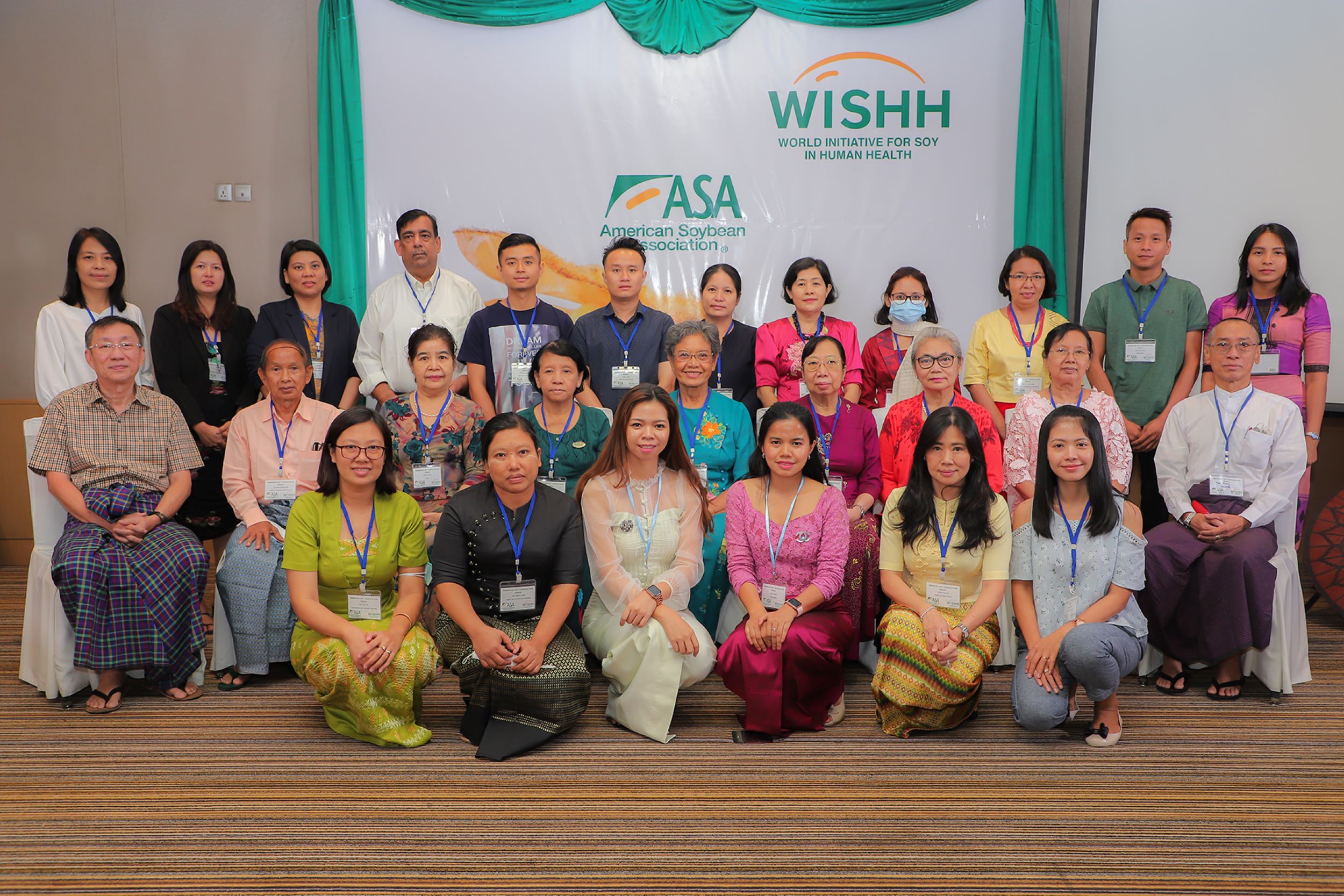Sponsors see value in international SSGA event
When more than 100 buyers, sellers, processors and users of high-quality grains and oilseeds arrive in Honolulu in mid-January, they’ll be welcomed to ocean breezes and 80-degree temperatures in a picturesque paradise. Despite the beautiful setting, relationship-building and business will be at the forefront of the inaugural Identity Preserved International Summit, hosted by Specialty Soya and Grains Alliance (SSGA).
“The conference will be an opportunity for our trading partners to engage with U.S. IP suppliers to discuss industry challenges and trends,” said Bob Sinner of North Dakota-based SB&B Foods, “but more importantly the opportunities that will grow our relationships and businesses.”
SB&B is one of several generous sponsors of the Identity Preserved International Summit. Without their support, the event would not be possible. Sponsors range from qualified state soybean boards (QSSBs) to specialty oilseed and grains suppliers, to logistics providers and more.
Sinner said the Summit is an opportunity for both sides of a trade partnership to engage.
“We will be discussing industry challenges and trends but more importantly, the opportunities that will grow our relationships and businesses,” he said. “A key portion of this event will include an update and the latest developments to the improvement of our supply chain reliability.”
Five QSSBs are major sponsors of the Summit, including the Michigan Soybean Committee, Missouri Soybean Merchandising Council, Minnesota Soybean Research & Promotion Council, North Dakota Soybean Council and Wisconsin Soybean Marketing Board.
“Michigan farmers grow a large amount of specialty soybeans for many different uses,” said Mark Senk, president of the Michigan Soybean Committee. “I am excited to share how my farm contributes to the production of specialty soybeans at the Summit. This event will help us to highlight the important practices behind identity preserved soybeans that make them such a desirable product.”
Ben Storm, a director with the Minnesota Soybean Research & Promotion Council, said the Council is proud to continue supporting the U.S. Identity Preserved brand in 2023. The Council also co-sponsored SSGA’s global launch of the assurance plan in November 2022 in Vietnam.
“The relationship-building and networking opportunities at international events like this Summit are invaluable,” said Storm. “Gathering farmers, industry leaders and buyers to promote U.S. Identity Preserved soybeans and grains helps make a difference for Minnesota growers, along with raising awareness of soy checkoff investments.”
Aaron Porter, chairman of the Missouri Soybean Merchandising Council, agreed.
“SSGA’s ability to be the aggregator of inquiries of interested parties helps put all the needs in one spot for current and future identity preserved soybean growers to learn and potentially fulfill the request that gives them a bigger return on their crop investment,” Porter said. “The Identity Preserved International Summit serves as a central meeting point for U.S. soybean suppliers and Asian buyers who may or may not have met with producers before. The conference serves as an excellent opportunity to send soybean staff and farmers to meet with buyers and learn more about what they need and where they can hear directly from us, U.S. soybean farmers, about our challenges.”
The event is also an opportunity for growers in Wisconsin to solidify markets, said Wisconsin Soybean Marketing Board Chair Pat Mullooly, who will attend and speak on a panel with other growers at the event.
“Our board recently took a good look at our strategic plan and what goals we should have for soybean growers in our state,” Mullooly said. “Identity preserved and non-GMO acres will continue to be a key market opportunity, and we believe SSGA and this event can help solidify relationships with buyers in those key markets for Wisconsin growers.”
Representatives from the North Dakota Soybean Council added that growers in their state produced more than 200 million bushels of soybeans, with about 15 million bushels being identity preserved in 2022. This event allows producers and buyers to network to create new relationships to develop markets for soybeans grown in North Dakota.
Other major sponsors include Norseman Protective Solutions, the U.S. Soybean Export Council and United Soybean Board.
“Norseman will participate in the Identity Preserved International Summit to reinforce our commitment and support to our customers,” said Rick Zieg of Norseman Protective Solutions. “It is an opportunity for us to highlight our products and to learn more about our industry, which is always evolving.”
The Identity Preserved International Summit also appreciates sponsorship support from We Farm Organics, SB&B Foods, Scoular, Hang Tung Resources, Legacy Agripartners, The Redwood Group, Ray-Mont Logistics, Richland IFC, Brushvale Seed, Michigan Agricultural Commodities, Zeeland Farm Services and Insta-Pro International.
“We are so grateful to all of our sponsors for their support of this inaugural event and the first of its kind devoted to this high-quality sector of agriculture,” said Eric Wenberg, SSGA executive director. “This event would not be possible without their support and commitment.”

 More than 30 people representing tofu and soymilk companies, importers, food science technologists and food science university faculty met in person, while others joined online to complete SSGA U’s Getting on the IP Highway class.
More than 30 people representing tofu and soymilk companies, importers, food science technologists and food science university faculty met in person, while others joined online to complete SSGA U’s Getting on the IP Highway class.


